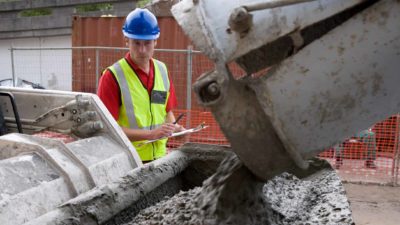ASX rare earths shares including Lynas Rare Earths Ltd (ASX: LYC) shares and Arafura Rare Earths Ltd (ASX: ARU) shares have had a tough trot of late.
Since the start of the month, the Lynas share price has dipped by 9.2%. It hit a new 52-week low of $7.26 on Tuesday. Today, Lynas shares are trading for $7.45.
The Arafura Rare Earths share price is up 0.8% since 1 March but has endured a rough ride. The stock fell 8.3% over the first three days of trading in March before recovering to 60 cents per share today.
The cause of this drama for Lynas and Arafura and fellow ASX rare earths shares?
That'd be Tesla Inc (NASDAQ: TSLA).
On 1 March the global electric vehicle giant announced its next-generation EV motor won't contain any rare earths.
But analysts at Adamas Intelligence reckon ASX investors' concerns over this news are 'overblown'.
Let's investigate.
How Tesla slapped down the Lynas share price
Adamas Intelligence is an independent research and advisory services company specialising in critical metals and minerals.
In commentary published on its website, Adamas says Tesla's decision to do away with rare earths motor magnets means it will likely use a ferrite magnet. This will make the cars heavier and less efficient.
Traditional EVs use magnets created with a rare earths alloy of neodymium, iron, and boron (NdFeB).
Adamas points out that Tesla's primary goal is to create cars with a high performance-efficiency balance. So the company's decision to abandon NdFeB magnets is surprising.
Tesla justified the change by saying it anticipates problems with rare earths supply. It's also worried about the environmental and health impacts of mining the minerals.
But as Adamas points out, China has been the world's primary supplier of rare earths. New suppliers are now emerging whose operations are less environmentally damaging due to stricter regulation.
Adamas says:
Today, there are more supply options than just China/Myanmar and others on the cusp of starting production – options that are transparent, close to home (for Tesla in particular) and substantially less impactful on the environment than the China production of yesteryear.
Currently, Lynas is the only significant separated rare earths producer of scale outside China.
Implications of Tesla's decision 'expected to be minor'
Adamas says its own research indicates just 12% of global NdFeB magnet consumption in 2022 was for EV manufacture.
Of that 12%, Telsa makes up 15% to 20%. That makes its overall contribution to global NdFeB magnet demand (excluding micromotors, sensors and speakers) just 2% to 3%.
So, even if Tesla were to dump NdFeB motors across its entire fleet, "the global NdFeB market stands to lose a mere 2% to 3% of demand in the near-term, and maximum 3% to 4% over the long-term assuming Tesla maintains its EV market leadership".
Adamas concludes the implications for the global NdFeB market are "expected to be minor".
Market reaction 'largely overblown'
Adamas says:
The media and market's reaction to the news has been largely overblown, speaking to a broad misunderstanding of the NdFeB market's supply and demand fundamentals.
Looking forward to 2035, Adamas forecasts that global demand for NdFeB magnets will triple while global production will only double, constrained by long lead times to bring online new rare earth oxide production.
In relation to the magnitude of the expected supply gap, a 3% to 4% drop in demand by 2035 would go virtually unnoticed.
Top broker Bell Potter also describes the sell-off in ASX rare earths shares as a 'knee-jerk reaction'.
The broker says the world will still need a materially increased supply of rare earths no matter what Tesla does.









